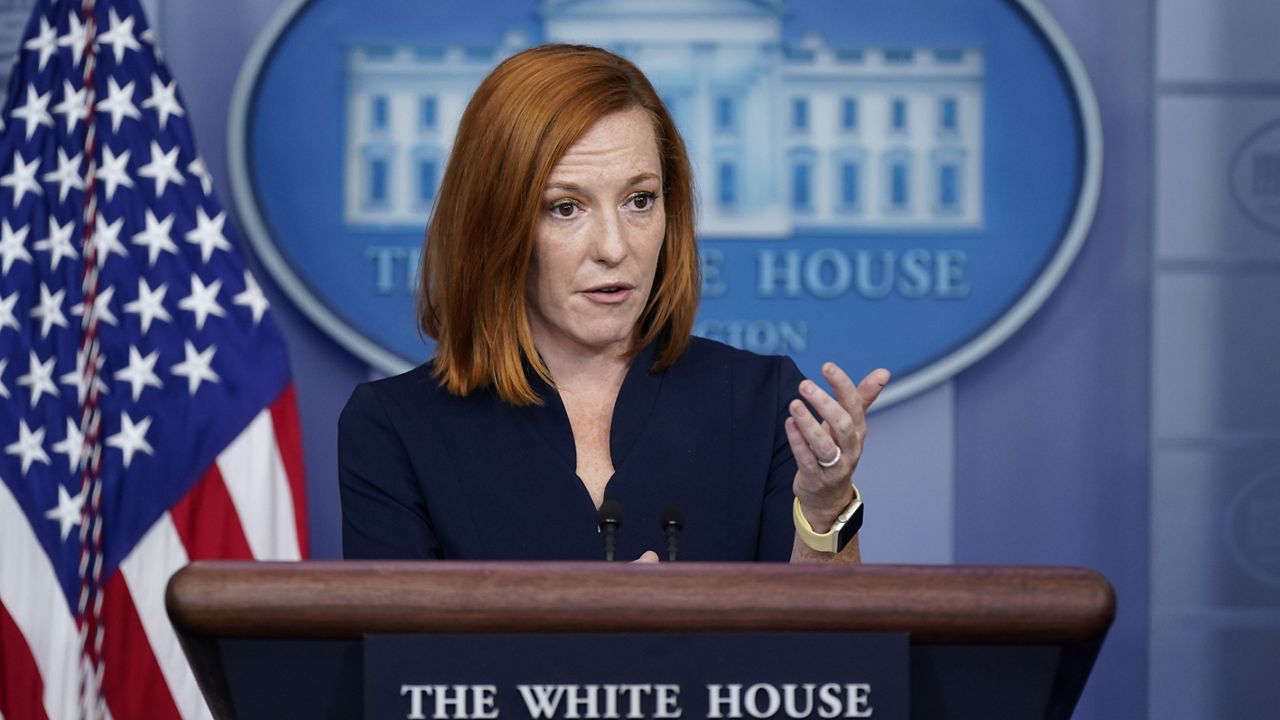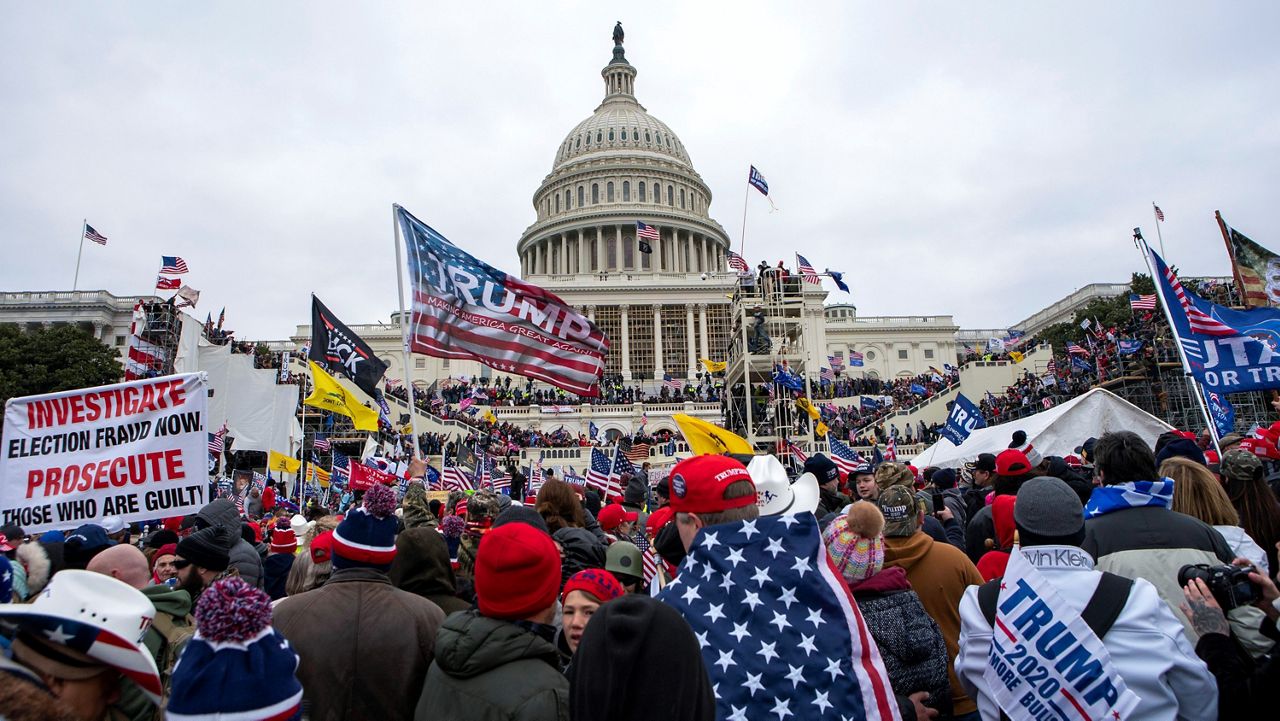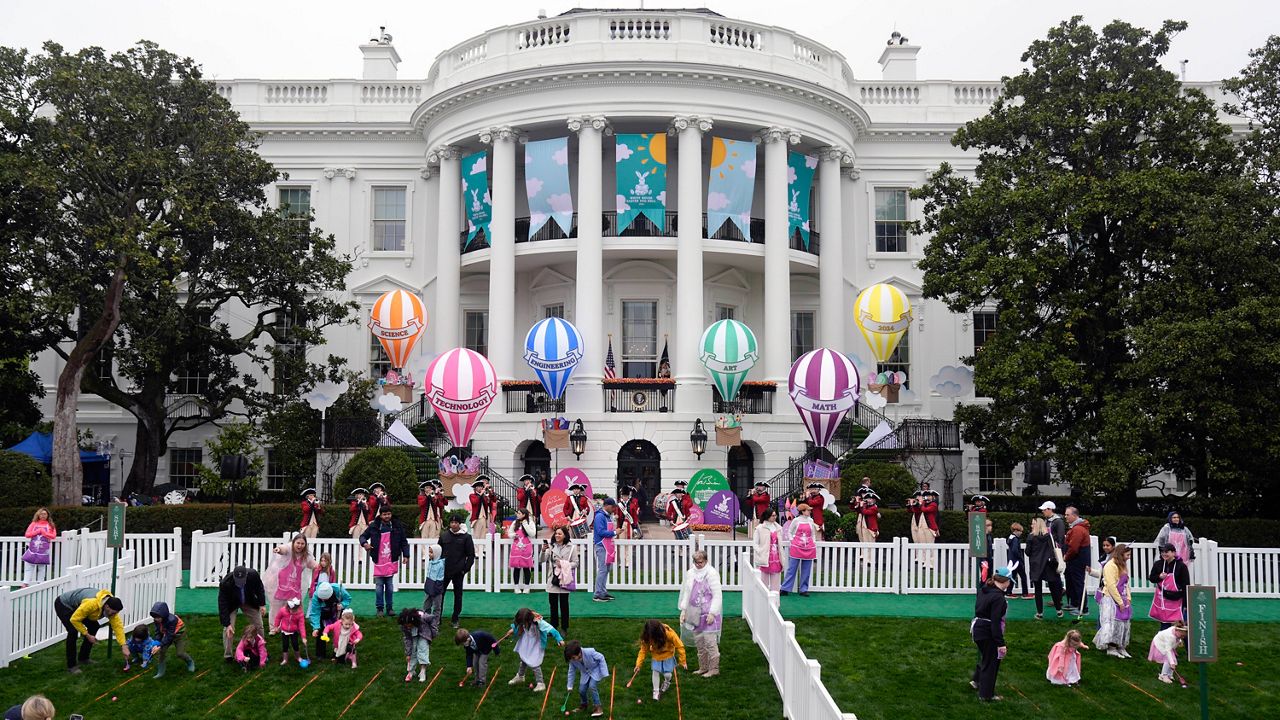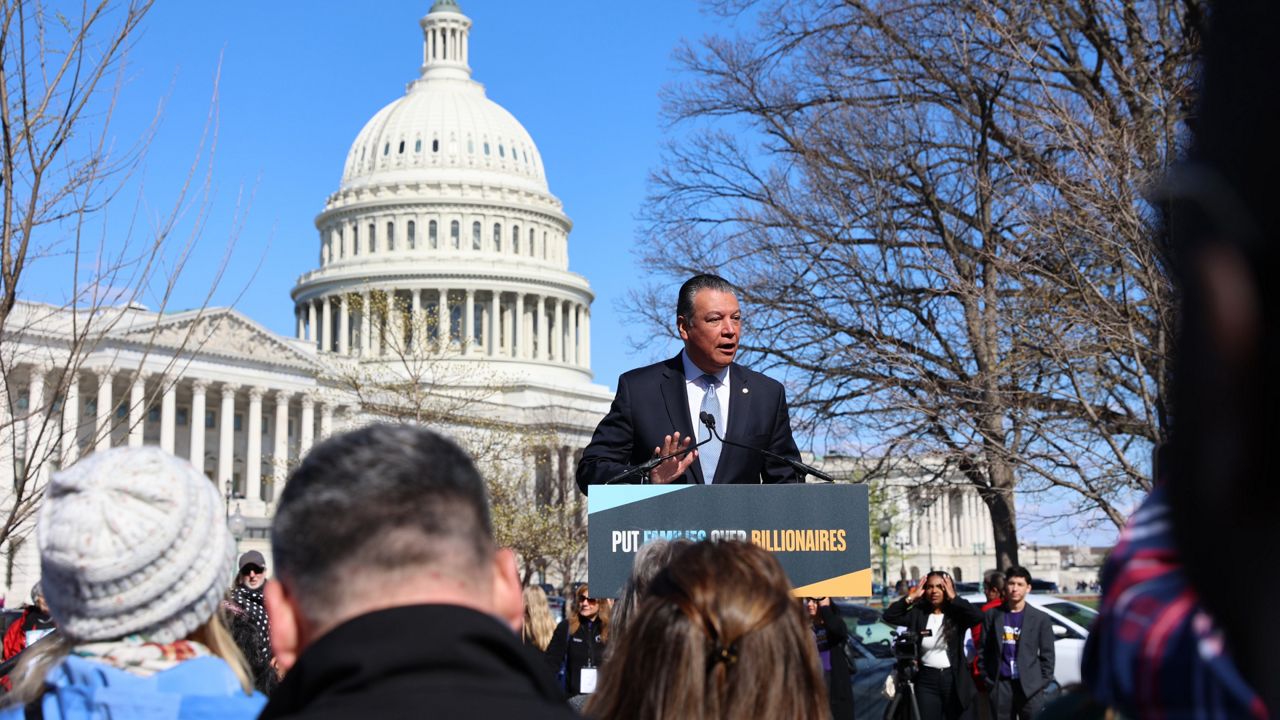White House Press Secretary Jen Psaki said Friday that President Joe Biden determined he will not invoke executive privilege to shield former President Donald Trump's White House records from the House panel investigating the Jan. 6 insurrection at the U.S. Capitol.
"We take this matter incredibly seriously," Psaki said at a press briefing Friday. "The president has already concluded that it would not be appropriate to assert executive privilege."
"So, we will respond promptly to these questions as they arise," Psaki continued. "And certainly, as they come up from Congress, and certainly we have been working closely with congressional committees and others as they work to get to the bottom of what happened on Jan. 6."
Psaki told reporters that the Biden administration has not received a request from the former president's team to use executive privilege to protect any of the records, adding: "We don’t get regular outreach from the former president or his team, I think it’s safe to assume."
The news comes after Committee Chairman Bennie Thompson, D-Miss., announced Thursday the subpoenas of former White House Chief of Staff Mark Meadows, former White House Deputy Chief of Staff for Communications Dan Scavino, former Defense Department official Kashyap Patel and former Trump adviser Steve Bannon. The four men are among Trump’s most loyal aides.
The panel, formed over the summer, is now launching the interview phase of its investigation after sorting through thousands of pages of documents it had requested in August from federal agencies and social media companies. The committee has also requested a trove of records from the White House. The goal is to provide a complete accounting of what went wrong when the Trump loyalists brutally beat police, broke through windows and doors and interrupted the certification of President Joe Biden’s victory — and to prevent anything like it from ever happening again.
In a statement, Trump asserted that “we will fight the Subpoenas on Executive Privilege” and suggested that the panel should call witnesses to testify about the “Rigged Presidential Election of 2020.”
There is no evidence of widespread voter fraud, a statement verified by multiple courts, elections officials and even Trump’s own attorney general William Barr.
Though Trump has signaled his refusal to hand over any details to Congress, he doesn’t necessarily have the final word now that he’s out of office. According to an executive order on presidential records, the archivist in possession of the records “shall abide by any instructions given him by the incumbent President or his designee unless otherwise directed by a final court order.”
The White House has indicated it is inclined to release as many of the documents as possible, but officials aren’t ruling out that there could be individual records Biden may deem privileged.
The subpoenas are certain to anger Republicans, most of whom have been content to move on from the insurrection and have remained loyal to Trump even after denouncing the attack. Only two Republicans sit on the panel, Wyoming Rep. Liz Cheney and Illinois Rep. Adam Kinzinger.
In July, the committee held an emotional first hearing with four police officers who battled the insurrectionists and were injured and verbally abused as the rioters broke into the building and repeated Trump’s lies about widespread election fraud.
At least nine people who were there died during and after the rioting, including a woman who was shot and killed by police as she tried to break into the House chamber and three other Trump supporters who suffered medical emergencies. Two police officers died by suicide in the days that immediately followed, and a third officer, Capitol Police Officer Brian Sicknick, collapsed and died after engaging with the protesters. A medical examiner later determined he died of natural causes.
The Metropolitan Police announced this summer that two more of their officers who had responded to the insurrection, Officers Kyle DeFreytag and Gunther Hashida, had also died by suicide.
The Associated Press contributed to this update.








